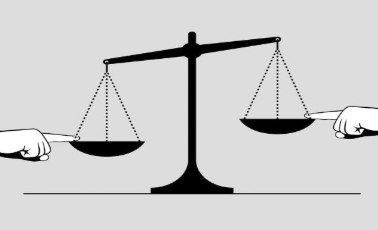Dissent in the Indian Judiciary: A Crucial Pillar of Democracy (GS Paper 2, Polity)

Context
- The phenomenon of judicial dissent in India has sparked widespread discussions, with debates centered on its implications for the judiciary, democracy, and public trust.
- Judicial dissent in India signifies not just an intellectual disagreement, but also reflects the robustness of the democratic fabric of the country.
Understanding Judicial Dissent in India
- Dissent in the judiciary is an essential feature of a democratic system, symbolizing the diversity of thought and maintaining the independence of the judicial institution.
- In India, dissenting opinions have consistently shaped legal discourse and have been instrumental in challenging majoritarian views, advocating for individual rights, and promoting legal reform.
- The right to dissent is protected under Article 19(1) of the Indian Constitution, safeguarding the freedom of expression.
- Historically, judicial dissent in India has played a pivotal role in advancing democratic ideals.
- A landmark example can be found in the ADM Jabalpur v. Shivkant Shukla (1976) case, where Justice H.R. Khanna’s dissenting judgment emphasized the primacy of fundamental rights, even during a state of emergency.
Types of Dissent in the Indian Judiciary
Political Dissent
- Judicial dissent in India often arises in cases with significant political ramifications.
- A notable instance is the P.V. Narasimha Rao (1998) case, where Justices S.C. Agarwal and A.S. Anand dissented on the issue of parliamentary privilege and immunity for politicians accused of bribery.
- This dissent challenged prevailing political views and highlighted judicial independence.
Social Dissent
- Judicial dissent on social issues reflects differing societal perspectives.
- The Shayara Bano v. Union of India (2017) case, which dealt with the controversial practice of triple talaq, saw significant dissenting opinions.
- The differing views expressed by judges, particularly on the intersection of personal law and gender equality, showcased the ongoing debate in Indian society regarding social justice.
Intellectual Dissent
- Intellectual dissent emerges when judges disagree over the interpretation of legal principles.
- This often contributes to the evolution of jurisprudence.
- For instance, in Lalta Prasad Vaish (2024), Justice B.V. Nagarathna dissented, asserting that states could not impose taxes on industrial alcohol, highlighting legal nuances and alternative interpretations.
Comparative Perspective
- Globally, judicial dissent is a common practice, but its nature varies.
- In the United States, dissent often aligns with the political inclinations of the judges, as they are appointed by the President and confirmed by the Senate.
- In contrast, the Indian judiciary remains insulated from direct political influence due to the collegium system, fostering a more independent judiciary where dissent is rooted in legal reasoning rather than political affiliation.
The Importance of Dissent in India
Safeguarding Democracy
- Judicial dissent is integral to democracy as it encourages the expression of diverse opinions.
- It prevents the imposition of a single, dominant viewpoint and fosters a more inclusive judiciary.
Preventing Majoritarianism
- Dissent ensures that the minority opinions are given equal weight, helping to counteract majoritarianism.
- By giving voice to dissenting views, the judiciary protects individual rights from being overshadowed by the majority.
Enhancing Judicial Accountability
- Dissenting opinions contribute to accountability by challenging the reasoning of the majority opinion.
- This scrutiny is vital in refining legal arguments and ensuring more robust decision-making.
Protecting Civil Rights
- Dissent is a tool for safeguarding the fundamental rights of citizens, especially those from marginalized communities.
- It provides an avenue to challenge the majority’s decisions that might infringe upon individual freedoms.
Fostering Legal Discourse
- By highlighting alternative interpretations of law, dissent contributes to an evolving legal landscape.
- It stimulates discourse and provides insights into how the law can adapt to changing societal values.
Concerns and Challenges
Impact on Legal Precedents
- While dissenting opinions are not legally binding, they have the power to shape future legal interpretations.
- They can influence reforms and lead to the gradual evolution of the law over time.
Social and Intellectual Divergence
- Judicial dissent often arises from differing social and intellectual perspectives.
- In cases like Shayara Bano, dissenting opinions arose from differences in how judges interpreted personal law, social justice, and gender equality.
- These tensions reflect broader societal debates, influencing the trajectory of legal and social reforms.
Public Perception and Trust
- Frequent dissenting opinions, while valuable, may affect public perception regarding the unity and impartiality of the judiciary.
- Such opinions may lead to concerns about the consistency of judicial decisions and diminish public confidence in the judicial system.
Conclusion
- Judicial dissent in India plays a fundamental role in preserving the integrity of the legal system and promoting democratic values.
- It ensures the representation of diverse perspectives, prevents majoritarian dominance, and protects individual rights.
- Despite challenges regarding public perception and the impact on legal consistency, dissent remains a crucial mechanism for accountability, legal evolution, and social change.
- As India’s legal landscape continues to evolve, dissent will remain an essential element, safeguarding the independence of the judiciary and ensuring that democracy thrives.


